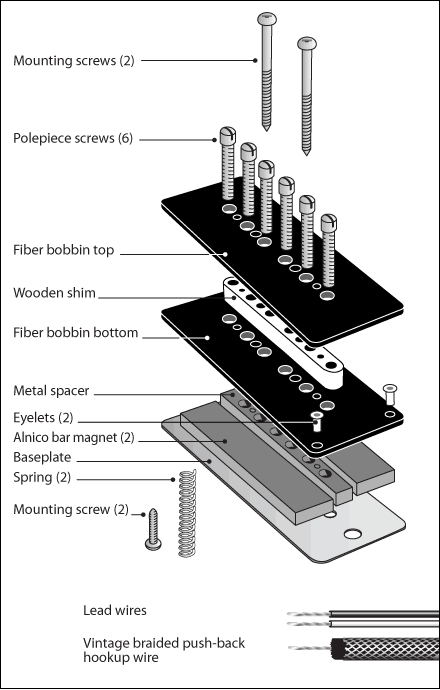

Soap bar pickups are essentially J-bass pickups with a wider housing. They’re great if you’re looking for a more vintage bass tone, though do know that they don’t have the clarity of the pickups above.

Dual-coil bass pickups, like humbuckers on a guitar, have a significantly warmer tone than single coil alternatives. These pickups are generally used by rock and punk musicians due to their punchy tone.ĭual-coil pickups are humbucking pickups, though they aren’t as common as j or split-coil pickups. Split-coil pickups are two halves of a single pickup, with one half resting slightly higher (more towards the neck) than the other. However, they’re also common in rock (Geddy Lee from Rush is a notable user). These pickups have a warm and clear tonality, and are commonly used by jazz musicians. J-pickups were first used on Fender’s Jazz Bass, and because of this are still associated with the instrument. Electric Bass Guitar Pickupsīass pickups are designed the same as guitar pickups, but they’re separated into different categories: J-pickups (Jazz Bass), Split-Coil pickups, Dual-Coil pickups, and Soap Bar pickups. You can see our recommendations in our guide to Electric Guitar Pickups. P90 pickups are best suited to blues and rock (but not hard rock), though they’re still relatively versatile. Their tone has a bit more depth than your standard single coil, but not to the extent of humbuckers. They have a higher output than single coil pickups, but they don’t have the output of humbuckers.

P90 pickups are the happy medium between single coil and humbucker pickups. The only genres humbuckers don’t do well are country and surf, but beyond that they perform well in any circumstance (depending on their output of course!). However, due to their higher output (output=volume) they outperform single coil pickups in genres where high levels of distortion are required. Humbuckers have a warm tone in comparison to single coil pickups, which is why they’re the pickup of choice for jazz. Humbuckers were designed to “buck” hum, hence the name. Single coil pickups are subject to 60-cycle hum, a phenomenon where background electrical noise is transferred to your amp along with your strings’ vibrations. Humbuckers are essentially two single coil pickups working together. They’re only weakness is that they don’t handle high levels of distortion (like what you’d hear in hard rock and metal) as well as humbuckers. The genres that use single coil pickups famously include country and surf, though they sound great in almost any genre. Single coil pickups don’t have one easy to define tone because they’re so widely used, but as a general rule they’re considered to be brighter than humbuckers or P90s. A good example of a single coil pickup are the pickups on a standard Fender Stratocaster (though they’re used on countless guitars, not just those from Fender!). Electric Guitar PickupsĮlectric guitar pickups (and electric bass pickups) can be divided into three main categories: single coil, humbucker, and P90. Pickups are used on electric and acoustic instruments. A pickup is a magnet with wire wrapped around it that transforms the vibration of your strings into an electronic signal. So without much further ado, let’s get started… What Is a Pickup?īefore we get started, let’s make sure we’re all on the same page. We’re not going to delve into too many technicalities, or try and list every conceivable pickup and the pros and cons associated with them, but by reading this article you’re going to have essential knowledge to make an informed purchase. And if you don’t get the right pickups for what you want to do, you’ll find it hard to get the tone you want.īecause there are so many types of guitar pickups available, we’ve set out to create an introductory resource that you can use to figure out which pickup is going to be the best fit for you. For example, you’re not going to use the same pickup to play country that you use to play hard rock and metal. Pickups also work towards different purposes. However, pickups come in different shapes and sizes. They’re just as important as the wood your guitar is made from, your strings, and your amp and they deserve an equal amount of consideration. The pickup(s) in your guitar are what allows your instrument to be heard. Original photograph by Maja Dumat, modified by Jason Horton and published here under Creative Commons license.


 0 kommentar(er)
0 kommentar(er)
